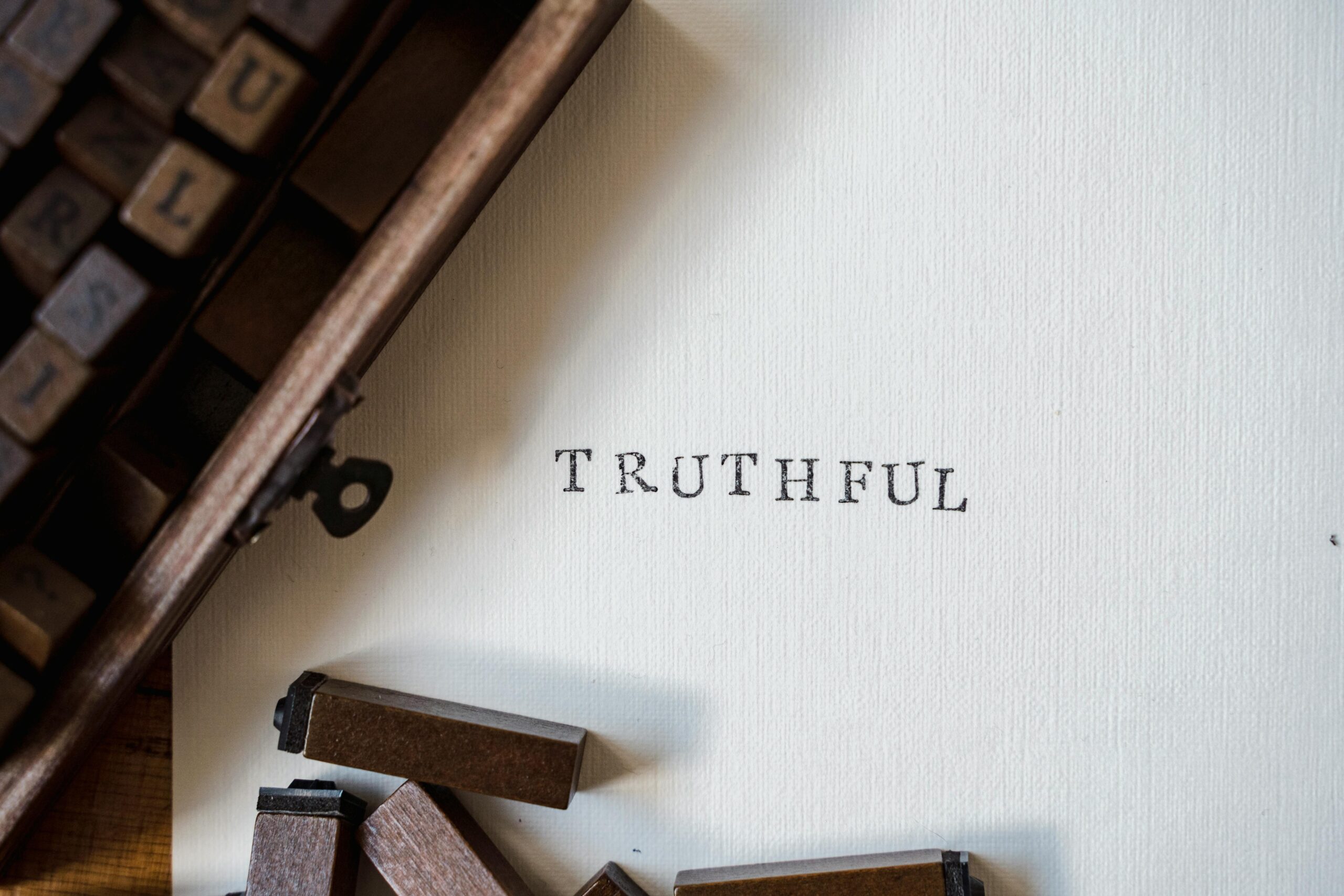
Satya, The Second Yama
The Yoga Sutras of Patanjali provide us with a guide to reaching Samadhi – the state of bliss.
The Sutras cover what is known as the ‘8 Limbs of Yoga’ . Each limb is an aspect of the path of yoga, and offers us guidance within our practice, both on and off the mat.
The first limb is made up of the ‘Yamas’, or moral values. The guide to how we can best act towards ourselves, and the world around us.
The second Yama is Satya which translates to Truthfulness.
Satya, Your Truth: Exploration with Satya in Yoga
All aspects of our life can benefit from applying the teachings of Satya and it means a lot more than ‘not telling lies’.
The word ‘sat’ literally translates as ‘true essence’ or ‘true nature’. Sanskrit is a vibrational language and so each word is so much more than a label. It literally holds the very essence of the word. Because of this, ‘sat’ also holds the meanings; ‘unchangeable’, ‘that which has no distortion’, ‘that which is beyond distinctions of time, space and person’, and ‘reality’. Many Sanskrit words use the prefix ‘sat’ such as ‘satsang’ meaning ‘true company’ and ‘sattva’ meaning ‘pure’. This which leads us to understand that ‘sat’ really means more than ‘truth’, it’s something that is unchanged and pure.
When looking at the word ‘truth’ from this perspective, it’s easy to understand how so much of our time is spent not actually seeing the truth or reality in any of our life situations.
Our thoughts, emotions and moods are extremely interchangeable, yet these are the things that create our own truth and our whole life experience. If ‘sat’ means ‘unchangeable’, then this can make us aware that much of our experience of life is brought about by paying more attention to that which changes, rather than the unchanging truth.
Have you ever felt a nagging sense of inauthenticity, a disconnect between who you are and how you present yourself to the world? Satya is about living authentically, aligning your thoughts, words, and actions with your true essence.
Unearthing Your Inner Truth
The journey of Satya begins with introspection, a courageous turning inward. We all construct narratives, stories we tell ourselves about who we are, justifications for our actions, and fears that keep us confined within self-imposed limitations. Satya invites us to approach these narratives with a gentle curiosity, peeling back the layers of self-deception.
This isn’t about harsh self-criticism. Instead, it’s about cultivating self-awareness built on a foundation of truth. We begin to recognise the subtle ways we manipulate our perceptions, the justifications we weave to avoid discomfort, and the fears that masquerade as desires. As we cultivate the courage to see ourselves clearly, we lay the groundwork for a life lived in alignment with our deepest truth.
The Harmony of Satya
The Yamas and Niyamas provide ways in which we can not only build a better relationship with the world around us, but with ourselves too. If we cannot be honest with ourselves first, we cannot really be honest in any other part of life.
We often identify completely with our emotions and thoughts; ‘I am a bad person because of this….’ or ‘I’m not good enough because of that….’
And it is exactly these vrittis or fluctuations of the mind which we look to still through a yoga practice according to the sutras.
It isn’t surprising that we sometimes find it challenging to not identify solely with emotions as the emotional part of our brain evolved long before the ‘thinking’ part. But when we let our mind run away with us, we define ourselves by how we feel at that very moment instead of seeing things how they really are.
Complete honesty with ourselves requires us to create a little bit of space, stillness or at least some slowing-down of the mind. When we react instantly to situations on a purely primitive and emotional level, we’re often not seeing the truth and are instead acting from a place of fear and conditioning.
We are not our Thoughts
Once we know we are not our thoughts, there’s a little sigh of relief as a bigger gap is created between who we think we are sometimes (the ego), and who we really are (the atman, our innermost essence).
A daily practice we can use to help us un-identify with irrational thoughts, is to simply take some time observing each thought as it arises. Watch it as it passes without getting caught up in it. Don’t worry if this seems difficult sometimes, it takes practice and even then it’s not linear.
Learning and accepting that all emotions and situations come and go and are in fact not unchangeable or true, helps us come to terms with the fact that life isn’t as complicated as it might sometimes seem.
The Art of Compassionate Communication
Living Satya doesn’t mean brutal honesty that leaves a trail of emotional wreckage. It’s more akin to the skilled communicator, who strives to deliver a truthful message while remaining mindful of the audience. Perhaps a friend is embarking on a path you genuinely believe is unwise. Satya doesn’t compel you to blurt out “you’re making a mistake!” Instead, it encourages you to choose words that convey your concern while respecting their autonomy. This kind of compassionate communication fosters trust and builds bridges of understanding.
The Ripple Effect, Transforming Our World Through Satya
The practice of Satya isn’t just about self-improvement. It has the power to ripple outwards, transforming the world around us. Imagine a world where leaders speak with authenticity, where businesses operate with integrity, and where communities thrive on trust and open communication. When we embrace Satya, we become living testaments to its power. Our honesty inspires others to shed their masks and embrace their own truth. Our compassion fosters trust, building bridges of connection. And our integrity becomes a beacon, guiding others towards a more authentic way of being.
Satya on the Yoga Mat
Our yoga mat is often the place we get to take a good look at ourselves, our habits, and our state of mind.
Practising asana with Satya in mind can be very similar to applying the first Yama Ahimsa to our physical practice. How many times have you ignored or pushed past an injury or limitation just to get into that yoga posture? Even if it’s only staying in a challenging pose a few breaths more than our bodies really needed to. It’s this dishonesty with ourselves that can often cause physical pain.
Our yoga practice is here to serve our bodies and minds, not harm our joints and ligaments, so each time we get on the mat it’s important to have complete honesty with what we actually need in that very moment. On a physical and emotional level, we change all the time, so fixating upon one way of practising isn’t always going to work out. When we can get the ego-mind out of the way (the one that tells us we should be able to do headstand, or we should be able to meditate without getting distracted) we can see past our conditioned, ever-changing and un-true ways of thinking. From here we can uncover a more pure and beneficial way of practising and treating ourselves on all levels.
One very simple way of observing truth in our practice is by paying closer attention to the breath. The breath is such an important compass in our asana practice, but one of the most important aspects is that it tells us when to back off. If the breath is strained or shallow, it’s likely that the body isn’t happy with what it’s being asked to do. So even though it might hurt our ego a little bit, honesty requires listening to the breath in every moment and working with it. Our practice grows as we grow, and going to the edge safely in our asana practice is all about being honest with ourselves in every moment.
Satya in relationships
Satya isn’t just about what we say, it’s about how we live. Imagine a life where your thoughts resonate with honesty, your words carry integrity, and your actions reflect your true intentions. This is the essence of Satya – a harmonious alignment that fosters trust and connection in all your relationships.
Being honest with ourselves is difficult, but being completely honest with those we love can be equally as challenging.
Honesty is the foundation of any strong relationship, whether it be romantic, platonic or within our families, but letting our ego get in the way of our heart can often stop us from forming meaningful relationships with others. Being truthful is something appreciated by everyone, and when others know we are honest towards them, we’ll build a trusting relationship where others know they can look to us for honesty.
There is a balance though. Acting with compassion for others is also important. The Yoga Sutras advise that if being honest in that moment is likely to cause harm to another, then it is best not to say or do anything at all. So if the situation calls for it, remember that sometimes it is better to be kind than to be right.
Sometimes, silence can be the most truthful response. Satya isn’t a rigid adherence to constant verbal honesty. Imagine a friend confiding in you about a secret. While the urge to validate or advise might be strong, sometimes the most truthful and compassionate action is simply to listen, holding their secret with integrity without betraying their trust. This kind of silence speaks volumes, offering a safe space for vulnerability while respecting boundaries.
We can begin to observe the motives behind our actions, asking yourself ‘will it truly serve the other person, or am I doing this because of a need to prove something or gain something?’ is a useful tool to help us apply both Satya and Ahimsa to our situations.
Truth sets us Free
Our asana practice offers us a tangible gateway into a more profound yoga journey. Little by little, the postures and diaphragmatic breathing release the truths stored in our body, while mantra and meditation can gradually unveil the root causes of our mental and emotional behaviour. Some patterns may be easy to discern and change. Others are so deeply embedded that they will take a little longer to uproot them. The more layers of untruths we unearth, the more we discover to work through. But each layer we allow ourselves to dig up has the potential to take us deeper within and closer to our inner core. I find that the more honest I am with myself, in a loving, playful, nonjudgmental, accepting way, the more honest others feel they can be around me.
There is a great freedom in being able to be who we really are, rather than hiding behind a mask of what we think others expect us to be. It allows us to be more spontaneous, more in tune with our creative intuitive side, and, ultimately, more open to explore the deepest truth of all—Self-realisation. As we remove the layers of our cultural conditioning, we expand our beliefs to allow new perspectives, and as we clear inner spaces, we catch more and more glimpses of our true Self.
Discover who you are not to find who you are
To discover who you are, you must first discover who you are not. I am on a never ending path of discovering what I am not. I know many things I am not, and I am yet to discover more. If we fear failure, we never even begin to tiptoe towards what we are not, and if we cannot do that then we certainly won’t discover what we ARE. Failure is a necessity. Fail, fail, fail again. Life is a series of failures, it’s not the outcome but the process.
The Journey of a Thousand Miles begins with a Single Step
It can take time to change our habitual patterns. There will be moments when we stumble, when fear or self-interest cloud our judgment. The key lies not in achieving immediate perfection, but in cultivating the unwavering commitment to keep walking the path of truth. Perhaps it begins with a small truth we’ve been avoiding, a commitment to keep a promise to ourselves or a friend, or offering constructive feedback. These seemingly insignificant acts are the building blocks of a life lived in Satya.
Each situation we come across offers us the opportunity to see the truth if we are open to it. A daily practice of slowing down, taking a couple of deep breaths and observing things as they really are can help us move closer towards a state of peace and stillness in the mind.
This exploration of Satya is a continuous process. As we integrate its principles into our daily lives, we not only find greater peace and fulfilment within ourselves, but also contribute to creating a more authentic and harmonious world.
If you’d like more information on anything yoga please contact me or book here to practise with me in Marlow, Twickenham and online.
With love
Anney xx




